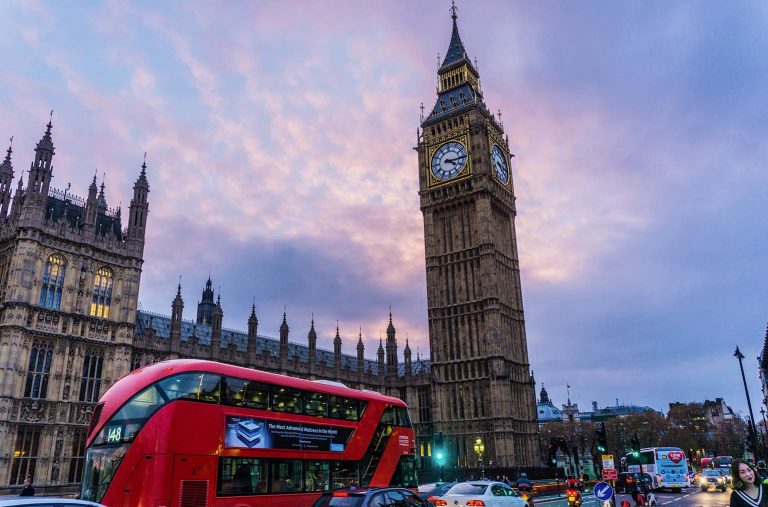
UK CPI Inflation – Part Two
Discussion and Analysis by Charles Porter:
PART TWO: Inflation data and the United Kingdom
This morning saw the monthly release of salient macroeconomic data related to prices and inflation. Each major GBP-based currency pair has experienced a rally following the release, leading to an explicit appreciation of the Pound Sterling. This article analyses the market mechanisms behind the revaluation.
Part One of this article examined why higher than anticipated inflation rates lead to a counter-intuitive appreciation of the exchange rate in favour of the Pound Sterling. However, an expectation-based currency appreciation such a this connotes complications and urges caution. This article explicates these worries, presenting a cautious and bearish impression of Sterling’s week ahead.
Firstly, the longevity of the heightened inflation must be questioned. Secondly, the policy preferences of the BoE should be qualified. These two admonitions are explained sequentially below.
Why might inflation not last?
Inflation, when measured by both indices, is a reflection of the weakness of Sterling induced immediately after the Brexit vote on 23rd June 2016 and related downward trends. The weakness of the pound decreases the international purchasing power of the pound meaning that imports are relatively more expensive. The Retail price index increases due to expensive import components used within the production process, whilst the CPI is inflated because imported consumer goods, with a price fixed in an international currency, cost more pounds.
Given that well over one year has elapsed since the decision, the year on year percentage change in the index value will begin to adopt a new threshold of base rate. Specifically, that base rate will begin to be one that was itself affected by the weaker pound and higher inflation. Whilst there is a delay in the sensitivity of inflation to the exchange rate and import prices, excessive year on year inflation should be short lived. Thus inflation will begin to retreat back to BoE targets.
If the BoE internalises the purely short-term nature of the inflation rate then it is more likely that the Committee will vote against a rate hike in order to prevent the loosening of monetary policy once inflation rates have normalised. Therefore, in summary, the excessive inflation rate does not represent an economy with no spare capacity overheating. Instead, it portrays an economy with a high marginal propensity to import struggling to adjust to accelerated import prices.
The Bank of England Committee:
The second admonition alluded to above is the Bank’s set of policy preferences. Some members of the Committee are evidently more hawkish than others, having voted consistently for a rate hike during previous meetings. Others, however, may adopt more cautious, dovish, policy paths given the stagnation, or even inversion, of real wage growth.
Raising interest rates should curtail investment by raising the cost of borrowing. As investment falls alongside the availability of capital, the propensity for progression and wage growth similarly falls. Therefore, an interest rate hike may further stagnate real wage growth. The mandate of the Bank permits this consideration because it is less independent when measured by policy than, for example, the ECB. Therefore, considerations outside of the rate of inflation and price stability are permissible, increasing the propensity for a no-hike decision despite today’s data.
In conclusion, today’s data may only really represent the weakening of the purchasing power of one unit of British Sterling. Considerations of the Bank’s likely action may preclude the expectations that have now, after 9:30AM, been priced into the exchange rate from materialising. There is therefore a downside risk within GBP-paired currencies. Accordingly, there is an acute possibility that Thursday will see a reversal of the gains made against the Dollar and Euro today. With employment data released tomorrow, there is also the possibility that Sterling’s strength might be even shorter lived. The informal rhetoric surrounding the Bank’s monetary policy decision will be just as important for exchange rates as the actual interest rate target. This is because confidence may be induced for future, imminent, rate hikes thus preserving Sterling’s new exchange rate.

The Graphs above show the Sterling-Euro and Sterling-Dollar intraday exchange rate fluctuations. The CPI data was released by the ONS at 09:30 this morning. A clear spike coincides with this time because expectation-based mechanisms manipulated the clearing rate of the two pairs of currencies. Following the decision, Sterling continued its gains against the international reserve currencies throughout the morning.
Related Insights

Daily Brief – Chancellor Reeves
Chancellor Reeves Market observers were no better informed at the end of the Rachel Reeves speech than they were at the outset yesterday morning. The only surprise was that having comprehensively floated options in the past two months for inclusion in her November 26 Autumn Statement, that the Chancellor should have elected to speak at […]

Daily Brief – UK Economy
UK Economy The question is whether the contraction of 0.1% in the UK economy announced on Friday between August and October was as a result of the Chancellor’s economic strategy or due to her Hokey Cokey Budget that resulted in UK plc sitting on its hands for 3 months in the run up to November […]

Daily Brief – Profit Repatriation
Profit Repatriation For UK companies with overseas earnings reporting in Sterling, 2025 has been a salutary tale of a strengthening British Pound with periods of volatility prompted primarily by geo and domestic politics and POTUS. GBP/USD has seen a range of 1.22 to 1.37 and GBP/EUR 1.13 to 1.22. Finance managers at such companies are […]


 Humphrey Percy
Humphrey Percy